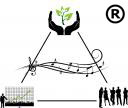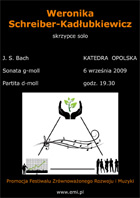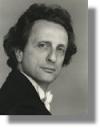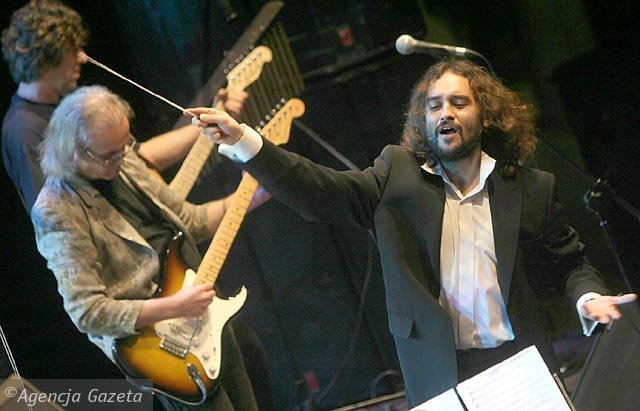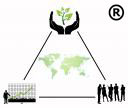Sorry, this entry is only available in Polski.
Kategoria: Sustainable development Blog, Articles and reportage | Komentarze wył. »
Sorry, this entry is only available in Polski.
Kategoria: Festival ZR/SD-M, Articles and reportage, Concerts | Komentarze wył. »
“Culture is all the dreams and labour tending towards forging humanity (…)” Denis de Rougemont
Business, not only the one from the cultural sector, through its actions contributes to the development of culture.
Below you will find some quotations from the Communication on a European agenda for culture in a globalizing world COM(2007) 242:
“Culture lies at the heart of human development and civilisation. Culture is what makes people hope and dream, by stimulating our senses and offering new ways of looking at reality. It is what brings people together, by stirring dialogue and arousing passions, in a way that unites rather than divides. Culture should be regarded as a set of distinctive spiritual and material traits that characterize a society and social group. It embraces literature and arts as well as ways of life, value systems, traditions and beliefs.(…)
(…)culture is an indispensable feature to achieve the EU’s strategic objectives of prosperity, solidarity and security(…)
(…)There is a strong link between the promotion of culture and creativity and EU (…)legislation(…)
(…)the Commission wishes to make 2009 a European Year of Creativity and Innovation(…)
(…)OBJECTIVES FOR A EUROPEAN AGENDA FOR CULTURE: …three interrelated(…)
– promotion of cultural diversity and intercultural dialogue;
-promotion of culture as a catalyst for creativity in the framework of the Lisbon Strategy for growth and jobs;
– promotion of culture as a vital element in the Union’s international relations.(…)
(…)”Intelligence is programmed for the creation of differences.” Francesco Alberoni
(…)Creativity is the basis for social and technological innovation, and therefore an important driver of growth, competitiveness and jobs(…)
(…)”Culture is not a luxury, but a necessity.” Gao Xingjian
(…)” end of quotations
Development of a Declaration of Culture by a given organizational unit in the spirit of sustainable development is important.
Kategoria: CSR, Articles and reportage | Komentarze wył. »
Do we need a stick to motivate us for any changes? Is a penalty on the horizon the only thing that matters?…
Today I heard that a businessperson is interested in palpable, definite things, like numbers, not in philosophy… Well, it’s nothing new, I heard it from students of Polish technical universities, while studying theoretical physics…
I do not question someone’s need of perception of reality through numbers, but I cannot agree with a concept that a change in management methods must be implemented through fines only…
We have not harmonized the Polish sustainable development strategy with the EU, and, at least so far, we do not face a fine, but is it a reason to be complacent about the status quo?…
The so called amended Gothenburg Strategy (SDS) is written in a concise style, which facilitates putting it into practice through various programs or plans. The provisions of this strategy state that the member states were to harmonize their sustainable development strategies with the SDS. What is more, they should do it in a cascade-like, downward mode, reaching the level of enterprises…
Do we really feel to be members of the EU, or do we just want to take advantage of the EU funds?
The businessman I talked to claims that when Poland faces a penalty, we may hope for a document harmonized with the EU, that local authorities harmonize or write their own sustainable development strategies in forms consistent with the provisions of SDS and national strategy, and that the world of business will follow the path…
Polish business starts to use the Internet for announcing its strategies of sustainable development…
Some countries, through the Internet and other media, published their indicators of sustainable development and their goals in that direction. Do we have such indicators and goals adopted for Poland? Is it being discussed by the media? Does sustainable development deserve attention of the media?…
In my opinion a problem of implementation of green public procurements depends among other things, or perhaps mainly, on the lack of positive political climate for the cause of sustainable development. How often local authorities associate the matter of sustainable development only with environmental protection… They forget that there are three pillars of sustainable development, namely, economy, society and the environment.
Walking along the path of sustainable development also involves development of voluntary initiatives, which often reach farther than the requirements of law. So, rather than the awareness of penalty, it involves awareness of the need of our times, global thinking, interaction of fully aware stakeholders. Change in awareness…
Kategoria: CSR, Articles and reportage | Komentarze wył. »
When I initiate a discussion on sustainable development with businessmen, I often recognize a similar mocking or irritated undertone in the response: “…. do you really know what business is?”
And I dare say, I know, after years of work as a manager and consultant. I know it enough to understand the hint of mockery or irritation, and enough – to question the notion that the term “sustainable development company” is not justified in the real world.
True, it is easier to consider implementation of beautiful theories in the atmosphere free from financial worries, when we do not need to fret about the survival of a company on the market. Let us not forget, however, there is a risk lurking in short-sighted plans too…
21st century is a century of sustainable development. In July, 2008, the European Commission published the Sustainable Consumption and Production and Sustainable Industrial Policy Action Plan COM(2008) 397. Currently, the first version of the document “THE SUSTAINABLE PRODUCTION AND CONSUMPTION ACTION PROGRAM FOR 2008-2011” undergoes the process of public consultation. Up to December 12, 2008 everybody may suggest amendments to it.
Reading the aforementioned document by the European Commission and the draft plan prepared by our Ministry of Economy, I have an impression that beautiful ideas are being implemented right now. In 1998, Ray. C. Anderson published in the USA his “Mid-Course Correction. Toward a Sustainable Enterprise: The Interface Model” book. One can find there a beautifully described model of a sustainable development enterprise.
Solutions in the documents on strategy by the EU and in those being prepared by our Ministry of Economy resemble this model very much…
Kategoria: CSR, Articles and reportage | Komentarze wył. »
1. Your company Wanda Pazdan is a very original idea for business, at least in Opole. Why you, a recognized international expert in environment protection, a person who shouldn’t complain for lack of funds, made such a decision?
I must admit that EU projects, the so called international ones, provide remuneration that exceeds average salary in Poland several times. However, throughout my life money was not the only motivation for work. That is why, despite many interesting offers, after the Bosnia&Herzegovina project I firmly rejected participation in projects in foreign countries. One of the reasons was to prove to myself and to other major European experts that a reliable implementation of ideas I had been preoccupied with for years, calls for the change of principles of data collection by EUROSTAT and, of course, by our Central Statistical Office. I am not sure if I live long enough to see those changes… Although good sustainable development management also requires changes in European and Polish statistics procedure, I had some additional, private reasons. My second granddaughter was born. I just want to spend more time with children. I have been interested in sustainable development issues for years but my interest in music comes from my home.
2. Sustainable development – something people talk about a lot, as it seems an obligatory approach to the subject, but not much is actually being done. Why is this idea so important for you?
You mean an obligatory approach to the subject of EU funds. You put it well… I think that the idea of sustainable development is beautiful and implementation of its principles may result in economic and social boom and all this can be accomplished respecting the nature and other elements of the environment. Support for implementation of sustainable development is my company mission. I am aware of discrepancy between great scientific achievements in Poland on the subject of sustainable development and transfer of those achievements into implementation. I was a member of the “Man and the Environment” Committee affiliated with the Presidium of the Polish Academy of Science.
The notion itself may seem a little scary and its translation into Polish does not sound too good, but this is the official translation of the term. Today it appeals more to the public that environmental protection is important, that you can profit from it, that investments in this area made now will bring satisfying results if we give it enough time. And the same can be said about investments in human capital. We have an opportunity to implement projects in this regard but implementation of sustainable development means more. First, it requires development of common vision, e.g. vision of the region, with taking into consideration the provisions of the overriding strategies. In the EU New Sustainable Development Strategy, published in 2006, we read: “Sustainable development means that the needs of current generations will not limit implementation of the needs of future generations. This is the superior goal established in the Treaty on European Union which governs the European Union politicians and activities. It implies protection of the Earth, its ability to sustain varied forms of living things. It is based on principles of democracy, gender equality, solidarity, respect for the principles of law and fundamental rights, such as freedom and equal opportunity for all. Its objective is continuous improvement of the quality of life and prosperity on earth of the present and future generations. Moreover, it contributes to economic development, with full employment, high level of education, healthcare, social and territorial cohesion and environment protection, in the world full of peace and security, respecting cultural diversity.” [retranslated from Polish] It means, among others, implementation of green orders, forming attitudes of consumers, who by their behavior force changes in production, services and products for consumption. It may even imply modification of the tax system which as a result provides preferences for the production and services complying with the sustainable development strategy, it is modification of the education system, lack of unemployment. It is dynamic economic development, high level of education, common care and respect for health and common prevention of disease and social pathologies, territorial and social cohesion, safe and peaceful world. It involves bigger participation in social life, formation of small but strong social groups which respect cultural diversity, formation and implementation of patterns that promote development of an individual who is assessed not only on the basis of material possessions, etc. It is here where the media, advertisement and organizations of other type can play a huge role.
In Poland, the document called the National Development Strategy is in practice treated as the most important, major document on development. It is indispensable and very important as in the current programming period it is one of significant prerequisites for obtaining EU funds. Preparations are under way, however, to the next fund programming period… I think that in our circumstances and with current provisions of the Polish Constitution, the sustainable development strategy should be the main planning document. The EU New Sustainable Development Strategy is the framework in which the New Lisbon Strategy is only what drives the economy and prevents unemployment.
3. In the description of your company you mentioned emotions. How to associate emotions with implementation of sustainable development?
Implementation of sustainable development implies, for a given period, creation of a common vision of the future, formation of sustainable development strategy, then its implementation, monitoring and modification. On all these stages of implementation of sustainable development, the way of thinking, behavior, emotions and motivation of an individual play an important role. We can say that a person’s life consists of physical, mental and emotional spheres. Emotional sphere serves as an intermediary between physical and mental spheres, regardless which one of them initiates the first impulse. Human being as an organism acts and develops in a specific environment. There is a close relationship between him and the world around him. Emotions are the way we relate to the surrounding stimuli, information. The sustainable development strategy, established through social effort, includes measurable goals and tasks in itself. Their implementation is largely dependent on the motivation of each inhabitant of a given area, as during implementation of sustainable development, interaction between people and business, social and administrative entities is a significant factor.
Secondary emotions are emotions developed on the basis of personal inclinations together with some experience gained through our life. That is why the Committee of the Regions calls for education about sustainable development starting at the day or child care center level… Culture marks out trends of thinking and, as a result, impressions of individual persons result in the so called secondary emotion, as distinguished from primary emotion, in which automatism plays the major role. Emotions related to sustainable development, motivations of individual organizational entities, as well as inhabitants of a given area depend on the way local authorities form the sustainable development strategy, the way they promote it and on the quality of engagement of culture and education.
Kategoria: Articles and reportage | Komentarze wył. »
Soon, Al Gor and the Intergovernmental Panel on Climate Change (IPCC), established 19 years ago, will receive the Nobel Peace Prize. The Norwegian Nobel Committee justified granting the Prize as follows: “for their efforts to build up and disseminate greater knowledge about man-made climate change, and to lay the foundations for the measures that are needed to counteract such change.”
This fact awakens in me some reflections and memories.
Sixteen years ago, for the first time in my work, I used the IPCC guidelines. At that time I used working materials to the first copy of IPCC Guidelines for National Greenhouse Gas Inventories. In 1993 and 1994, I led the national air emission inventory CORINAIR’90, under the agreement between ATMOTERM S.C. company and the European Commissions Environmental Directorate General (DGXI). It was implementation of a new methodology of air emission inventory-a big challenge for me and for my company involving huge satisfaction from the performed work.
It was a nongovernmental air emission inventory and included 8 groups of gases. Carbon dioxide, methane and nitrous oxide emissions inventory was to be compiled according to the IPCC methodology, other gases – according to the UNECE-CORINAIR methodology. The air emission inventory proved to be the first one comparable to those compiled in other countries. Twenty nine European countries participated in the project. The European Commission regarded Poland CORINAIR’90 as one o the best inventories compiled in Europe. In Opole, on the premises of ATMOTERM S.C. company, I organized a Seminar with participation of representatives of the Ministry of the Environment, Chief Inspectorate for Environmental Protection, state scientific institutes and Polish research units which took up the issues of air emissions at the request of the Ministry of the Environment. During the Seminar I defended the results of the inventory. Upon such approval, I sent the report to the European Commission and my company published it in a book form under the auspices of the Ministry of the Environment. The table with the inventory results was for several years published by the Central Statistical Office. The Ministry used the results of the paper in the Governmental Report for the First Conference of the Parties of the United Nations Framework Convention on Climate Change (COP1). The CORINAIR’90 report received “The Best Product of the Opole Region”award in 1994.
I took part in the UN Task Force On Emissions Inventories and Projections (TFEIP UNECE). During the years 1994 to 1996, within ATMOTERM company, I participated in the Phare project Design of the System of Transferable Emission Permits and Implementation of the Pilot Project in Poland. Some of the solutions in the project suggested by me are implemented in the current European CO2 emission trading. Between 1998 and 2000, within ATMOTERM sp. z o.o. company, I led an international project Phare Topic Link on Air Emission (PTL-AE). Its main objective was analysis of the situation and technical assistance in 13 Central European states seeking accession to the EU, preparation of data from those countries in the format required for the reports of the European Environment Agency (EEA). The work, among others, was related to greenhouse gases and IPCC methodology. It involved cooperation with the EEA, ETC/AE and its network EIONET. In 2000, as a eader of Phare Topic Link on Air Emission, I took part in the meeting of IPCC experts in the India Habitat Centre, New Delhi, where I talked on the subject “Achievements in the field of emission factors.” One of the main goals of my report was to convince the listeners that plants which manufacture the same goods, have different emissions per production unit. At that time, that was a new idea for many experts, not only those from Third World nations. From 2004 to 2006, I worked in the EU project “Support to Air Monitoring,” in Bosnia&Herzegovina, dealing also with the issues of emission inventory, including IPCC methodology. I proved that current statistical data practice involved in EUROSTAT, and consequently, in the Central Statistical Office, should be changed, if we want to have good quality emission estimates at the country level. The principles of statistical data collection do not keep up with changes in economy. The development of small and medium-sized businesses did not bring parallel changes in the statistical system.
Reduction of CO2 emissions is one of the main, joint efforts in the EU and may prove to stimulate new technologies and behaviors.
The next conference of the countries which are the signatories of the United Nations Framework Convention on Climate Change UNFCCC (COP), will be held in December, this time in Bali.
In 2007, Nobel Peace Prize winner organized Live Earth concerts, a series of musical events for the purpose of drawing more attention to the greenhouse effect and growing CO2 emissions into the atmosphere. Global warming will contribute to even more intensive heat waves and devastating droughts in some regions (e.g. in southern Europe or northern Africa), and floods in other areas (like northern Europe or southeast Asia), as well as melting glaciers, rising sea levels, stronger and more frequent gales, thunderstorms or tornadoes. The IPCC Panel confirmed with over 90 percent probability that by developing industry we cause overheating the Earth.
The press reveals Al Gore’s high bills for electricity suggesting that the Nobel winner should probably apply the principle “physician, heal thyself” before anything else… But do the media justify such conclusions? No information is provided about power consumption per surface area unit of the house, office, or person. Providing comparable information is important not only at the level of negotiations between two countries!
Since 2007, apart from consulting, I have been organizing and managing artistic events, like concerts. For some time, I have been planning a series of partly oral, partly musical events for promotion of sustainable development.
Kategoria: CO2 / Zmiana klimatu, Articles and reportage | Komentarze wył. »
From the review of Polish Publishing House ARKADY, the publisher of “Violin and my life” by Yehudi Menuhin: “… in our noisy, chaotic world violin talks to us with such a clear tone that its music unites people all over the different epochs, cultures and languages…”
Yehudi Menuhin”We are surrounded by more and more noise which is getting unbearable the more so it is meaningless. Although it ceased to have a function of a signal, it has kept its aggressive tone… We are living in a world in which there is a primacy of vision over hearing. The image is crucial. Some people are still able to listen what the world whispers and they talk about vibrations that can be felt in certain places or can be transmitted by somebody’s voice. But generally, we judge the world by its image…Being limited by our visual perception and through it, also by sense of touch, we are doomed to contacts via intermediaries. The world has turned into one big commercial advertisement because our visual perception limits us to appearances. The eye leads us but it can also mislead us, whereas music can not be misleading because it is a part of the reality and reaches us directly. It reaches us from the deep of Absolute, not from its echo. Music can interfere with Absolut and change it. I had an occasion to observe ( thanks to the MUS-E project (Music, Source, Equilibrium and Tolerance – music as a source of equilibrium and tolerance)) miracles that music has caused…the aim of the project is to introduce singing and dancing into curriculum of schools for children from underprivileged families. Contact with music allows them to gain emotional equilibrium although the lessons take place only few hours per week. The classes produce spectacular results, one can see that the music influences these children in a way that their personalities are blooming, their sensibility is being developed, they can better manage interaction within the group, have a better improvisation and creativity skills to end up with more retentive memory. These children have better results in their school exams. It is as if under the influence of music vibrations, the children undergo a metamorphosis. The lack of confidence as well as prejudices, fears and aggression cease to exist…In today’s world music and dance are the antidote to aggression…the stabilizing influence of music and body movements combined with calm and concentration which are being brought along, is the concrete fact. There is no better way to guarantee a psychological well being of society and to achieve harmony between people…”
Of course we are not talking about concert halls and cinemas that have bad acoustics….
The article from website http://www.eurodialog.org.pl/ :
” Yehudi Menuhin, Culture and Peace.
We are witnessing today a growing violence, a dissolution of reverence, whether for religions, patriotisms, conventions, a withering of reverence for women, children and family, a brutalization of feeling, whether for nature or for life, and a loss of tenderness and compassion for the humble, the exploited and the suffering.
We are witnessing the accompanying orchestration of ruthlessness in humanity, of civil war and aggression, even in trade, even in schooling, on the streets, together with a general reversion to basic black-and-white simplifications, a form of fundamentalism which is invading all thought.
As against this dismal picture there are other novel and hopeful aspects for the dawning 21st century. One is the stripping-away of man’s self-glorifications, prejudices, false illusions, hypocrisies, and the laying-bare, figuratively and literally, of body and soul through our deeper knowledge and understanding of each. Will the good and the hopeful triumph over the evil? That seems to be the question today, and the very difficulty of its answer lies in the close and intertwining relationships of good and evil. We are moving, literally, towards dead ends at accelerating speeds; economic well-being is taken to represent continuous growth requiring the ever greater plundering of our resources, the pollution of all we breathe and swallow, and is threatening social revolutions as the increasing gaps and tensions between the rich and the poor grow. The collapse of democracy in favour of totalitarian regime is already in the air. At the same time we are searching for models of sustainability, whereby people’s talents and time and nature’s resources can be accommodated into civilised patterns without endangering our progeny and condemning them to ever greater misery.
The development of new and creative values – introspective, objective and revealing – should in no way be interpreted as a denial of the sacred but rather as a peeling-off of the masks, the costumes and vestments which we have often abused as symbols of a sacred realm, separated from everyday life, often to clothe our own sins and crimes. To oppose these menaces we must one day restore certain areas of life to that respect and reverence which many so-called primitive people have understood as being essential to mankind’s survival. Today not only our children and our trees but all children and all trees should be considered with reverence.
Certainly, one reason for the demise of organized “rational” Communism was its negation of the sacred. As practised by Jesus, of the Essenes, this high concept of a community of sharing found its expression in a most devout religious feeling. It is the very same absence of the sacred from our capitalistic free market – (whether we sell and buy ourselves, other human beings of every age, or drugs, arms, coal, oil, timber, or natives) – that is accounting for the present downfall of civilizations which counted democracy and freedom of thought and expression amongst their sacred virtues. For in order to dominate, persuade or govern ever larger diversities of human cultures and geographical features, it is necessary to come not only with superior means of subjugation – weapons for both instant and delayed action – mortal arms and economic strangleholds – but also with an ever more universal doctrine – or shall we call it an ever wider slice of truth?
There is no doubt that the missionaries who brought the promise and the realization of an ever wider application and acceptance of a moral code, the promise of salvation, the threat of eternal hell, especially when evoked against the doctrine of equality, justice, and a benign Father protector exercised a wider appeal than any tribal religions could possibly have done, adapted as they are to local needs but lacking in that concept of total equality, universality of justice, absolution of sins and a divine protection which only the “one true God” could ensure. The Jewish Faith, the Catholic Church and Protestantism are still commanding religions, and many churches have proliferated, some crassly exploitative of human beings and tax-free status, others most high-minded – the Seventh-Day Adventists, the Bahai, Quakers, not to speak of another great offspring of the Jewish Faith – Muhammedanism, historically a noble religion which has in some respects not evolved out of the age of Empire and Messianic ambitions – rarely having participated in the democratic advances of hard-won freedoms and representations.
But no religion today the world over questions the basic principle of monotheism, because it is already more than a half-truth. Not only is the “Maker” one, but the relativity of all else to the one, of light to matter – light being liberated matter and matter being imprisoned light – and now already dawning the truth of the relationship, the equation between the organic and the inorganic, between the inanimate and animate chemistry all go to prove that the universe does not rotate around man nor that god was anthropomorphic, but that living and developing intelligence is supreme. There can be no doubt about our all belonging to the one continuous creation, of which we are as much the motive as the passive part. I believe this credo raises man’s role of intelligence and responsibility to its highest potential whilst placing us as human beings humbly serving a cosmic intelligence greater than our own, leading us to the seat of revelation. What is certain is that we can be both proud and humble; proud of belonging to a living destiny and humble in our reverence for the greater intelligence vested in all consciousness.
However, traditional monotheism in its concept of oneness is still only a little more than a half-truth so long as it excludes two principles: a) Oneness must imply that God is not apart from His creation; he inhabits and is part of every atom and cell. Infinity, eternity and constant creation possess us inexorably, as does the religious spirit. Man is by definition a religious animal, possessed of free choice and responsibility. b) The principle of infinite diversity must be regarded as equally sacred as the principle of oneness, and to this extent the pagan and the animist must be accorded their own rightful share of the sacred. My own personal belief is sympathetic to the conviction of many animist creeds and of our own Druids – God does inhabit the trees – and I believe the Catholic Church is strongest partly because it has tacitly admitted and never completely broken with the pagan – unlike Muhammedanism and it parent Jewish tradition of never defining or drawing the Maker or the Made.
It is noteworthy that the oldest and founder religion of our western faiths – the Jewish and the least superstitious – has itself had a very minor role in proselytizing. Not only had the Jews for thousands of years no temporal power – state, army or fleet – they were people of the Book – and, no more than the Quakers’ was their empire of this world. Literate, philosophizing, communicating in and refining the abstract in words and numbers, the temple, the school, the home and the family substituted for empire-building and the lust for power over others. They were also the keepers of the Ten Commandments until a Jewish state was “re-“formed, a difficult admixture of cultures and state. They never failed to be the lightening-rod for persecution – religious, racial, and now national – hardly an attractive choice for conversion! I am afraid that their (our) Lord is reserving yet more punishment for this oldest of persecuted great peoples – in His careless and indifferent acceptance of the consequences of free choice. The Holy Land has never, as far as I know, been self-governing since Biblical times, when Semitic tribes conquered the land. If it is today again self-governing; it should become, as King Hussein said to me, a Semitic Federation.
The theme of my discourse tonight is the relationship of Culture to Peace. We have touched upon religious aspects of cultures but have not considered the purposes of Peace. The belonging to and acceptance of a given culture is essential to the security, the continuity required to till the land, to educate the children, to pursue knowledge, to create visible, audible and lasting confirmation of any given culture. The sacredness of Church, often above and beyond King and country, accounts for the cathedrals, chapels, the music, the formal arts, the schools, imposing formal frames of behaviour in their demand for widespread reverence and respect on the earlier, more narrow and basic folk-cultures. Thus, any given culture is an admixture of the sacred and the temporal, of what can loosely be described as higher and lower, between what we might call the eternal and the permanent. We require a degree of permanency to ensure the security of successive generations, to pursue its culture research, science, art and commerce, but we cannot enjoy these fruits of civilization without a relationship to the eternal, which, I believe, we are now beginning to acknowledge.
Some cultures are purely predatory, preying on the accumulated reserves of the more stable, often destroying them; others, as Sparta, were purely military. Some were a mixture of would-be world dominators and great cultures – Germans, Japanese, and in its own way the Soviet Union – joining the military with the message. Germany tried through Goebbels et al. to formulate a message, but it was pathetically bare and condemned to defeat as it was limited to the superiority of Aryans! Some cultures were purely peaceful, others – the Polynesians, Eskimos, Red Indians – had no defence against our God and our Gun.
The age of Western Empires produced joint efforts of great distributions of similar colours on world maps, being the result of joined warrior and priest. It may be argued that England planted the element of parliamentary democracy and commerce more firmly than other Empires. A secure and beloved homeland played at Empire more successfully than others because it formed men of every estate and class who, for different motives, were disposed to risk their lives and fortune at games; winning came easily because sportsmanship and trade were all-important.
Today we have states and cultures of all sizes, all descriptions, from the newer global cultures of science, technology, commerce and communication to communities of nations, European, Commonwealths, to national, regional, nomadic, immigrant, inner-city; we encounter both the minute and the international aspects of these in conventional and confrontational situations. Waves and tidal waves of violence erupt in our Iives and usurp our time, our peace-of-mind, our security, our very consciousness. We live in a patently disordered world in which new forms, new patterns of order, some more enlightened than others are emerging. Some should be obsolete but are making a last desperate stand – forms of brutal fundamentalism; by contrast various small youth communities, as the original San Francisco flower people, or their opposite number – inner-city gangs – coalesce. Above all, these most advanced, intellectually alert and open-minded international global youth, sharing the same personal and global anxieties, are committed to a better world -socially, ecologically and spiritually. This global youth is prepared to fight for global human values but, I believe, will not engage itself out of national pride any Ionger. This is one reason why modern professional armies are, in fact, in a sense mercenary armies and why the Russian, the Chinese, are essentially people’s armies, as the Swiss still are. These armies must eventually be replaced by an imposed social-cum-military community or world police with the highest standards of public service and committed to the protection of the weaker – women, children, poor, hungry, crippled, sick, weak and homeless – even, upon occasion, “lawbreakers”.
The instantly brutal is invading the realms of cultivated and subtle expression. Our five senses are assailed with mortal effect – to quote the last words in Hamlet, (a massacre) “of sound and fury signifying nothing”. Nothing is more revealing of the eternal truth of Shakespeare’s words. On television, genocide, killing and torture; in our media a constant stream of degrading sensations, reports and gossip as against that never-never land of enticing advertisements where we learn the purity of purchased bliss. We suffer the noise of road drills or the forced feeding of music, deafening decibels at discotheques. These insults to our senses of hearing, smell and taste are brutalizing and are a symbol of the confrontation between human beings and their different needs. These divisions make ever less sense in a world ever more dependent on itself, and one in which each of us is dependent on so many other people and furthermore a world in which we instantly react to events all over the globe. Yet we must ensure peace for each and for all. I will now speak of the conditions for such peace. Such peace must allow for the full unfolding of our talents, our gifts for self-expression, for otherwise they fester, ferment, rot and destroy. The societies we envisage must be bound by a sense of belonging to ever-widening concentric circles or spheres of common dependence and interests. Such societies must be as robust as they are subtle and must allow man, the religious animal, the full expression of his feeling and his faith in eternity and mystery of life in its oneness and in its diversity. He must live creatively, yet with profound respect for nature and the ways and freedoms of his co-habitors.
His formation must begin at the earliest age with the refinement of his senses, first and foremost the sense of hearing, of voices, of music, of memory, of surrounding space. Yet, even before, there must come in chronological order the sense of immediate touch, skin and tongue, the warm and protective, the caress and, of course, inevitably, the unpleasant, hurtful or corrosive. Speech and music are but extensions of the tactile as vibrations from beyond us set up vibrations on and in our ear drums, i.e. within ourselves. Our hearing, unlike our sight, which is directional and confrontational (subject v. object), is global and all-embracing. Our eyes should rest on the green of nature, on the sky, on the stars and the moon, on the seas in all their moods, on sources of sounds which occasion human reaction, protecting, comforting, meditating, but also frightening in small inoculative doses, whilst learning to defend ourselves, or to avoid, to intervene or to ignore. Writing and reading are visual skills which cannot really flower until listening, thought and speech are fully evolved. The senses of fantasy and observation by singing, drawing, painting, reciting by composing poetry and music, by mime, by acting, the control of our body and its health by a knowledge of nutrition and training in various disciplines – yoga, Taichi, martial arts, paired with movement and dancing as with singing from the earliest moments possible – constitute a child’s world and are the basic formation which must precede the abstractions of reading, writing and calculation. The cultivation of though and speech is far more important than of reading and writing because it is basic. Dreaming, talking, indeed even philosophizing, must precede abstract study.
The aural is more is more important than the written, however less advanced it may be in terms of recorded knowledge and wisdom. The aural represents, however, our accumulated wisdom and constitutes our separate cultures. We tend to spurn the aural in our civilizations and in civilizations which have evolved the aural to a very high degree of memory and social responsibility. But with the incredible advance of memory banks, computers capable of thinking in a manner, man’s and woman’s and a child’s inner world, inner life and integrity must be protected and encouraged. This is what I am attempting to achieve with the schools project MUS-E and with the project for the representation of cultures, as distinct from the political representations of nationalities. For this project to work it is essential that both the European Community and the Cultures recognize their respective reciprocal responsibilities. The Community as ‘Guardian of Cultures’ in the words of President Higgins, and the Cultures as supporters of the Community and of its functions. My very modest Foundation in Brussels, The International Yehudi Menuhin Foundation, is engaged in these tasks to help guide our European Community towards a balanced harmony in which autonomous cultures would be represented and protected by the European Community whilst themselves supporting the Community. The “porteparles” would have to be individuals fulfilling four qualifications:
a) the trust of their group,
b) the unquestioned authority and knowledge of the subject under discussion,
c) the ability to talk to an ‘enemy’,
d) of course no terrorist.
Once a mission or task has been successfully accomplished, that person would be eligible for a five-year appointment to an Assembly of Cultures meeting twice a year. We are intent on reviving and inspiring a genuine European conscience conceived in the image of what the integrated diversities of Europe have already brought the world – in music, in language, in literature, in science, in parliaments, in democracy, in open-mindedness and in social conceptions in advance of many other parts of the world. One of the most inspiring examples of man’s thought was the establishing of the United Nations Educational, Scientific and Cultural Organization (UNESCO). It was conceived in London by a wonderful group of men of great vision – Julian Huxley, the great biologist, was its first President – and it was to be totally apolitical, the counter-part of the United Nations. I am glad to say that in the hands of Federico Mayor it is in a strengthened way fulfilling its original concept of bringing the world together in the recognition of our responsibilities and obligations in the realms of education, of art, of heritage in all forms, from music to ancient architecture, of relief to the destitute and abandoned children in the streets of Sao Paolo and to hundreds and hundreds of wonderful human and humane initiatives taken throughout the world. I continually regret that the United States and England following in dutiful echo renounced UNESCO some years ago and are still refusing to rejoin this great human global organization. These thoughts occurred to me last Christmas Day. I feel humanity is passing through a very crucial time. We must all hope and pray for the triumph of good over evil, whilst recognising that it is possible to transform the negative into positive energies. This dynamic and living state of peace will require as much courage, faith, philosophy, compassion, foresight, reasoning as ever did any war in the past. ” Material from http://www.eurodialog.org/
Kategoria: Articles and reportage | Komentarze wył. »
Hope is the mother of the wise
Courage is the crown of life
Man is an artist by nature
Preserve your dignity by all means
Love is your light
Time is your friend
Love the truth
Lead a dignified life
Make the Earth a beloved treasure
Kategoria: Articles and reportage | Komentarze wył. »
On September 17, 2007, Professor Stefan Kozłowski passed away, taken by sudden death. Information about his death and funeral date reached me too late to attend his funeral and personally pay last respect to this giant fighter for sustainable development in Poland, who right down to the last moments of his life fought by organizing conferences, publishing books, giving public talks… There will be no more of them. His huge work, however, will not be lost – it will continue through his successors…
I want to thank you Professor for placing my name in nomination as a member of the “Man and the Environment” Committee affiliated with the Presidium of the Polish Academy of Science. I thank you for enabling me to participate in the Polish avant-garde of sustainable development. I thank you for motivating me for getting a PhD, and for your vision of me as a person leading a university department…
I haven’t got a PhD – I stayed on the path of consulting. The EU Bosnia&Herzegovina project destroyed my plans of scientific cooperation with you Professor, but here, on this Web site, I will promote sustainable development with application of integrated approach, based on the integral philosophy, as I mentioned in one of our discussion. I will write the book I promised to write… [/english]
Kategoria: Articles and reportage | Komentarze wył. »
